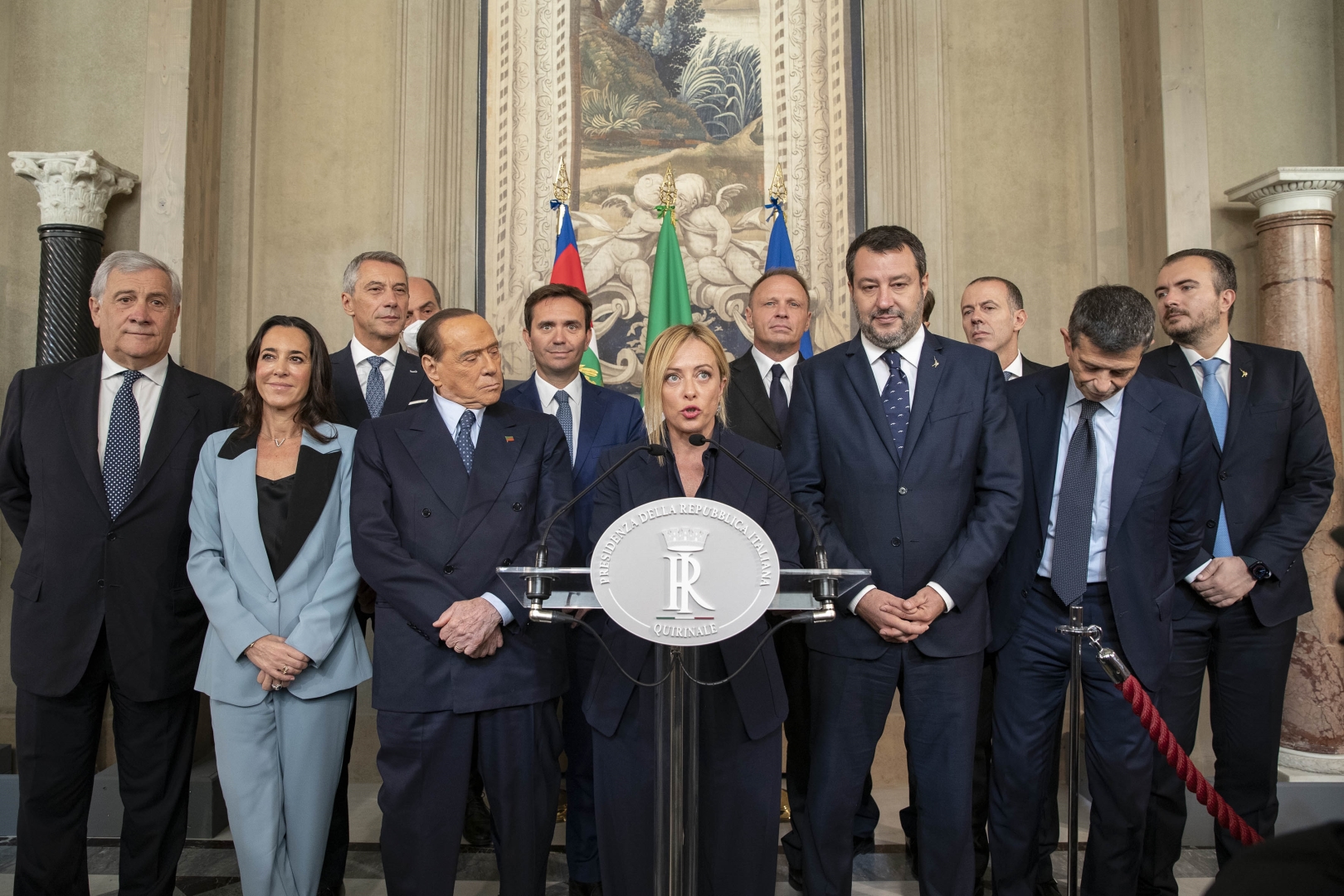The selection of ministers in her new government in October offered the first indications of the actual direction of Prime Minister Georgia Meloni’s policy for Italy ( https://peaceful-spence.217-160-25-183.plesk.page/neue-regierung- in-italy-for-five-years/ ). The presentation and discussion of the 2023 state budget (“Legge del Bilancio”), which was passed by the House of Representatives on December 24th and the Senate on December 29th, 2022, has now provided more details and prospects, as all measures that have an impact on the 2023 budget positions , appear in it, even if the connection does not seem clear at first glance. This means that a large number of legislative proposals are already pre-structured in the “Manovra”, as the budget is called in Italy and which means “control” or “provision”.
At the same time, further decrees were up for vote at the end of the year, to which desired changes to the law were added in a piggyback process that had little to do with the actual matter. So not only the 2023 budget law, but the entire legislative complex at the end of the year is informative about the direction in which Meloni wants to push the country.
After the presentation of the draft budget and thousands of amendments from government and opposition parties, the narrow time window between the formation of a government in October and the end of the year led to weeks of intensive discussions with ever new revisions, in which primarily the Ministry of Economics and Finance and the parliamentary commissions, but also the parliamentary chambers themselves were concerned with it. Individual measures had to be coordinated with the EU Commission as target agreements on reforms had to be adhered to for funds from the EU Recovery and Resilience Facility, which finances the ongoing national plan for recovery and resilience (PNRR). When the supposed final version was finally available for the parliamentary debate, the state accounting office demanded changes in over 40 points where it did not appear to be guaranteed that the planned expenditure would be covered. In the end, all-night meetings were necessary in order to pass the budget on time.
Prime Minister Meloni secured the majorities through preliminary disciplinary questions of trust. There were no significant deviations from the number of seats, which was not necessarily to be expected since Meloni and her Economy and Finance Minister Giancarlo Giorgetti (Lega) did not accommodate some of the interests of coalition MPs to the desired extent.
Winner and Loser
During the presentation and discussion of the budget, it became clear that the Meloni government wants to make significant shifts in economic and social policy. In practice, she turns many adjustment screws.
It is noticeable that these shifts mean accommodation for many interest groups, but a deterioration for others. Roughly speaking, the various self-employed groups are clearly on the winning side, while the unemployed are on the losing side. There are little or only small improvements for employees, workers and pensioners. Politicians themselves are beneficiaries, as they should be given more freedom of action, but especially less prosecution of prosecutors and judges and, if convicted of corruption, more leniency.
When it comes to self-employment , the focus is on small and medium-sized businesses: craftsmen, innkeepers and hotel operators, retailers, market suppliers, taxi drivers, service providers in tourism and wellness. These and others whose income is subject to VAT and who have a VAT identification number are called the “Partita-IVA”. This group has particularly suffered from the pandemic and is perhaps why around 30% voted for Meloni’s “Brothers of Italy” (FdI), which was the only party not to be in government in recent years, at the expense of the current coalition partner Lega-Salvini, who is currently tends to rely on this group. Many members of this group also postpone significant tax arrears from income tax, sales tax and social security contributions, sometimes due to non-filing of declarations.
The group of self-employed freelancers with “Partita IVA” and entrepreneurs with higher incomes is smaller in number, but has disproportionate political influence. Socioeconomically and culturally, this group also includes senior employees. Meloni’s FdI has also clearly won the race among this group, overtaking the formerly preferred Democratic Party (PD) and leaving entrepreneur Berlusconi’s Forza Italia (FI) far behind.
The self-employed are seen as winners due to numerous discounts. The most effective reduction is probably the extension of the flat tax, the uniform income tax rate of 15% for holders of a “Partita IVA” up to an income of 85,000 euros who opt for flat-rate taxation. Freelancers and entrepreneurs can also benefit from proportional taxation for increases in profits over the last few years.
In addition, many benefit from extensions of deadlines for deferring tax and social security contributions. Incidentally, such a scheme also applies to sports clubs, mainly the over-indebted clubs in the top football league (Serie A).
Municipalities are allowed to waive debts of up to 1,000 euros for unpaid taxes and fees. The beneficiaries here are also more likely to be self-employed people.
There were even more far-reaching proposals, especially from Berlusconi’s party, to cancel debts to the state or to drop proceedings for tax evasion. Meloni himself probably blocked these suggestions. The opposition and experts saw too strong a signal for tax evasion.
A bizarre detail of the favoring of this cultural class is the innovation that hunters will in future be allowed to shoot game within cities and nature parks. One automatically thinks of the wild boars that are now visiting Rome.
Also noteworthy is the renewed postponement of the periodic tendering for beach management concessions required by the EU. These are usually repeatedly extended in favor of the owners, who often have close connections in local politics, even to ministers in the new government. The discussion also reflects the confrontation between local small businesses versus international chains, even national sovereignty and EU interference.
Two topics initially dominated the budget debate, although their budgetary effect is small, but their suitability for media debate is obviously large: the topic of the lower limit of the obligation to accept card payments and the question of the maximum cash payment.
The coalition wanted to raise the minimum limit for requiring card payments to be 60 euros, which taxi operators and small traders supposedly liked, but which is hardly relevant in modern business life. The government first had to go back to 30 euros at the EU’s signal before leaving the current obligation law completely unchanged. Instead of the lower limit, the banks‘ commissions for card payments should be reduced or subsidized. The possibility of paying in cash, however, was actually increased to 5,000 euros, despite massive criticism from anti-corruption activists.
In stark contrast to these reliefs are the tightening of citizens‘ benefits (“Reddito de Cittadinanza”), which particularly affects the unemployed . The government has still shied away from a complete abolition. A distinction is now made between “Occupabili”, i.e. those who are employable, and others. Those who are employable will only receive citizen’s benefit for 7 months, unless they have disabled people, small children or old people over 60 years of age in their core household. The recipient of citizen’s benefit can only once again reject a job offer that is not “congruent” with their skills and place of residence. The effect is that the employable unemployed are pushed into the low-wage sector, even further away from their place of residence. For example, they should also work in agriculture, where a large number of seasonal workers and asylum seekers have previously earned their money.
In the years following its introduction by the five-star Conte I government, the amount of citizens‘ money was around 10 billion euros per year. The recipients live disproportionately in southern Italy. During the pandemic years, citizens‘ money helped to avert the recession. The Draghi government already wanted to change it with the aim of preventing abuse. The political debate about this revealed that for many politicians – and citizens in the northern part of the country – the misuse of citizens‘ money in southern Italy, for example while simultaneously working illegally, is a far more despicable act than the illegal work and illegal money economy that is widespread throughout Italy.
For dependent employees, the new budget announces at best marginal improvements. In order to reduce the disadvantageous tax effect of the gap between labor costs and net wages, a kind of cold progression, employees with an annual income of up to 30,000 euros are granted a small net wage increase, called “taglio del cuneo fiscale”.
The options for early retirement are also slightly modified. Employees can unplanned retirement from working life earlier (than before) if they can demonstrate a particularly long period of contribution payments.
The government strictly rejects a minimum wage.
For pensioners themselves, in addition to an increase to compensate for inflation, a temporary increase in the minimum pension is granted for those over 75 years of age. At the same time, the increase in pensions is dampened by higher pension entitlements.
Various subsidies for Italian families are being increased with the aim of ensuring that more children are born again. The relief already introduced by the Draghi government for private households for expensive electricity and gas bills (“care bollette”) and also for other energy purchases will be continued.
The 2023 budget estimates for education and healthcare provide for increases in staff, as well as for the public service overall. However, the reactions from these sectors reveal disappointment, especially from the healthcare sector and from regions that had expected significant improvements after the pandemic.
Relief for companies for energy costs is granted through tax deductions, financed by a special regulation for the skimming of extra profits from energy companies. There are a number of support measures for companies, some for the recruitment of young talent, some for “green” investments and much more.
Incidentally, an increased defense budget (around 30 billion euros) was waved through without much discussion, as was aid to Ukraine. Only members of the Five Star Movement commented critically on this.
Return of impunity
Further significant changes in the interaction between officials and companies that indirectly affect the budget and were therefore discussed and decided in parallel are revealing. As for local officials, the motivation put forward is that mayors complain about legal risks that make them hesitant to finance and invest in important activities. Due to incorrect procedures, many officials were accused and convicted of abuse of office, but were then often acquitted in the second instance.
By decree of Infrastructure Minister Matteo Salvini, small municipalities are now allowed to award investments of less than 500,000 euros without tenders.
The new Justice Minister Carlo Nordio, himself an experienced retired prosecutor from the Veneto and only recently joined Meloni’s party, also wants to abolish abuse of office („l’abuso d’ufficio“) as a criminal offense and supposedly also that of doing business with political influence (“traffic of influence”). These are a few of the Justice Minister’s diverse initiatives that are seen as relieving pressure on the political class. Others include easing prison sentences for white-collar criminals, weakening the public prosecutor’s office by separating common careers with judges (magistrates), no return for magistrates after switching to politics, transferring wiretapping rights from the public prosecutor’s office with judicial approval to the police with administrative approval, and much more. The public prosecutor’s offices are up in arms against it, including the specialized mafia prosecutors, although the changes are not intended to affect the fight against the mafia, but in the end they will. Here, too, some of the things that the five-star government of Conte I had introduced are to be rolled back, including somewhat older rules such as the “Legge Severino” of the Monti government, which previously prohibited the readmission of convicts to political office.
The government’s move in the last few hours to use the anti-rave decree, which was scheduled to be voted on, to introduce other substantial changes in the jurisprudence has raised alarm in the opposition. The initiative to make unauthorized raves a criminal offense for participants led to heated arguments at the beginning of the Meloni government because unions and students saw this as an opportunity to suppress unauthorized demonstrations. The decree was then more clearly limited to the specific matter and reworded with sanctions only for organizers. But then it was supplemented with irrelevant regulations, including the re-approval of no-vaxers in the healthcare system. Particularly controversial was the restoration of the blocking of the appeal of white collar cases after the first instance – which was abolished by Conte I. Abolition will protect some corrupt people from further harassment in higher authority. The President of the Parliament, Lorenzo Fontana, broke off the tumultuous discussion on December 30th by scheduling the vote, as otherwise it could not have taken place in 2022. Not all MPs in the governing coalition agreed, but this was mostly due to a disagreement over the approval of no-vaxers.
In addition, in the last few days even one of the opposition parties, the self-proclaimed liberal “Terzo Polo” (third pole) of Carlo Calenda and Matteo Renzi, has presented an initiative for a general statute of limitations, which the coalition is happy to take up and for next year is planned. This is intended to finally remove the restrictions on the statute of limitations for certain crimes, which were also introduced a few years ago by the five-star justice minister under the motto “spazzacorrotti” (away with the corrupt).
For the critics, and especially for the Five Star Movement, it looks like the so-called politician caste could succeed in allowing the beautiful old world of machinations to emerge again with impunity by allowing all Italians a little of it, except the unemployed. The venerable social democracy (currently called PD) is more concerned with itself than with an effective opposition. Calanda and Renzi seem to want to play along a bit, in contrast to the five-star movement. Incidentally, this is being massively attacked from all sides, including from other opposition parties and the media associated with them, even the former left-wing liberals. After the experience with the ups and downs in party popularity, these are good conditions for increasing appreciation of Giuseppe Conte among Italian voters who are notoriously skeptical of the government.
Meloni, however, justifies her policy with the motto: ’non disturbare chi vuole fare‘ („don’t disturb those who want to do something“).
Image source: Quirinale.it
















 Unser Blog lebt durch Sie!
Unser Blog lebt durch Sie!
Sehr interessant, danke!